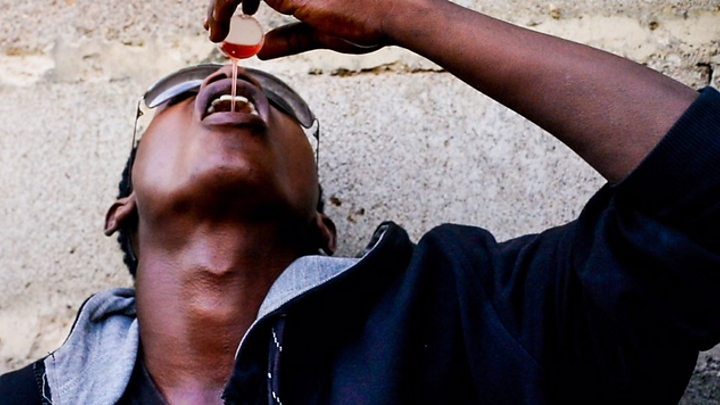
While the rest of Nigeria reels from the eye-opening BBC Africa documentary about codeine syrup addiction in Nigeria, thousands of families in Northern Nigeria know the devastation of drug addiction first hand.
Drug addiction is not a new illness. Opium addiction was recognised as early as the 17th century when users mixed it with tobacco and smoked it. Drug addiction is a global disease that doesn’t discriminate between the wealthy, middle class, blue-collar worker, and the poor.
Why is codeine so addictive?
Codeine syrup is not just ordinary cough syrup. It contains codeine, a potent natural chemical found in opium, the product of the poppy plant. Codeine is an opiate, a powerful narcotic drug that affects the central nervous system producing many effects:
- Relieves pain – an analgesic
- Drowsiness
- Euphoria
- Apathy
- Relaxation
- Slows down breathing
Codeine is a better narcotic analgesic than it is a cough suppressant, but the “harmless” looking cough syrup is often the beginner’s introduction to addiction. Codeine addiction occurs quickly because it stimulates the brain’s reward center, causing feelings of euphoria, pleasure, and wellbeing. Young people are most at risk of using codeine for recreational abuse.
In opiate addiction, the user begins to need more of the drug to produce the same feelings of pleasure and euphoria. Heart rate, breathing, digestion, alertness, and motivation all gradually become affected to the point that essential body systems don’t function properly. The user feels ill without the drug but when the drug is in his system, euphoria masks the effects of illness.
Addiction to opiates like codeine, heroin, and morphine can be extremely difficult to overcome!
Addicts often combine codeine with alcohol or other drugs to get more of a “high.” Codeine depresses the central nervous system, which controls breathing and heartbeat. Codeine overdose especially if combined with alcohol or another opiate can reduce breathing to the point where there’s little oxygen getting to the body’s cells leading to coma, seizures, brain damage, and death.
Symptoms and warning signs of codeine abuse
Signs and symptoms of codeine use and dependence can include:


How to recognize drug abuse in family members
Raising children can be difficult particularly during the teen years. The Mayo Clinic gives prevention advice and lists some possible signs that your teenager or other family member is abusing drugs:
- Problems at school or work— frequently missing school or work, a sudden disinterest in school activities or work, or a drop in grades or work performance
- Changes in behavior— Trying to bar family members from entering his or her room, being secretive about where he or she goes with friends, drastic changes in behavior and relationships with family and friends
- Physical health issues— lack of energy and motivation, weight loss or gain, or red eyes
- Neglected appearance— lack of interest in clothing, grooming or appearance
- Money issues— sudden requests for money without a reasonable explanation; or your discovery that money is missing or stolen or that items have disappeared from your home, indicating maybe they’re being sold to support drug use
Preventing drug abuse in children and teenagers
You have the considerable influence and can help prevent drug abuse in your teenagers:
- Discuss the dangers of drug use with your children.
- Listen as your children talk about peer pressure, and be very supportive.
- Set a good example yourself. Don’t misuse alcohol or addictive drugs. Children of parents who abuse drugs are at higher risk for drug addiction.
- Strengthen the bond.Strengthen the relationship between you and your children. It will reduce your child’s risk of abusing drugs.
Codeine addiction is difficult to break and can have devastating consequences for the user and their family. Treating it requires professionals using a holistic approach that addresses the individual, his environment, and the factors that put him at risk for addiction.


Marcus Coons
It helped when you mentioned how missing school or work can be a sign of drug abuse. I can see how anyone looking into this would want to understand how this process works. I would want to check with a professional for extra help with addiction.